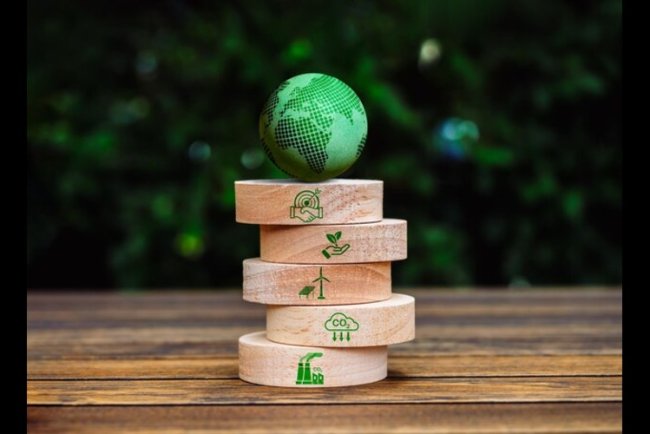Heineken Achieves Key Sustainability Milestones in 2024
Heineken achieves key sustainability milestones, including emission reductions, circular packaging, and fair wages.

Heineken has taken huge leaps in its sustainability journey, with broad-based growth, profit growth, and significant environmental and social contribution featured in its Financial and Sustainability Annual Report 2024. Heineken's sustainability achievements complement its ambitious Brew a Better World ambition, showing more emphasis on decarbonization, circular packaging, and social responsibility.
One of the highlights of Heineken's 2024 report is its continued pursuit of decarbonization. The company has registered a phenomenal 34% decrease in Scope 1 and 2 emissions since 2022, on course to achieve net zero across its operations by 2030. Further, Heineken has advanced on the use of renewable energy, with 84% of its operations globally being powered by renewable electricity in 2024. The company is also working towards its Vialonga brewery in Portugal, which is targeted to become completely powered by renewable energy by 2030. This is part of Heineken's more general target to reach net zero across its full value chain by 2040. In working towards this target, the company has invested in renewable technologies, including an electric boiler in Ethiopia, a heat pump in Hungary, and renewable thermal projects in Portugal. Heineken's innovation drive is evident in the way it leverages renewable thermal energy challenges, where disintegrated infrastructure and policy imperfections continue to hinder.
Heineken has also progressed towards coping with its Scope 3 emissions, which have dropped by 14% since 2022. It has lowered agricultural emissions by 23% and energy-based emissions by 11%. Heineken's Supplier Leadership for Climate Transition has been at the forefront of encouraging these advances, with 56 suppliers now reporting Science-Based Targets and 18 additional suppliers enrolling in 2024. Its REfresh Alliance has taken it alongside 10 beverage groups to increase suppliers adopting renewable power on a much greater scale, as another crucial achievement in driving the company toward its emissions-cutting efforts.
One of the most important aspects of Heineken's sustainability initiatives is its focus on a circular economy. The company has developed a worldwide circularity strategy centered on reuse, recycled content, and recyclability. In 2024, 39% of Heineken's beer was packaged in reusable packaging, with a goal of 43% by 2030. The company has also added 44% recycled material to its bottles and cans, with a goal of 50% by 2030. Heineken's circular packaging initiatives include projects such as the creation of the Heineken Returnable STAR bottle in South Africa and a circular glass recycling program in Brazil, in partnership with Ambipar. These efforts are part of Heineken's overall strategy to minimize waste and optimize resource use.
Heineken's sustainability commitment goes well beyond packaging and reducing emissions. The company has already seen substantial achievement in water saving, decreasing its water consumption by 11% since 2018. Efficiency measures at 56 locations have been a key contributor to this reduction, and the company has also increased its water balancing activities from 32 to 41 locations, with 100% water balance in Indonesia. Heineken has also initiated reforestation initiatives in Brazil, Nigeria, and Ethiopia to promote biodiversity and aid in water conservation.
Social responsibility-wise, Heineken has come a long way in advocating for inclusive workplaces and decent wages. In 2024, the brewery reached one of its major milestones, with women occupying 30% of senior management positions, beating its 2025 goal a year earlier than planned. Heineken is also on track to achieving 40% women in senior management by the year 2030. In addition, the company has done well in its efforts to narrow its gender pay gap, where it is at 2.3%, lower than the EU's 5% benchmark. Heineken believes in fairly compensating employees, and in fact, 99.7% of employees who have been assessed earn a fair wage. Singapore has an action plan aimed at addressing more wage equity. Heineken has also enhanced workplace safety, lowering its Total Recordable Injury Rate to 0.9 from 1.2 per 200,000 hours worked.
Beyond its environmental and workplace efforts, Heineken has been supporting responsible consumption. Part of its commitment to doing this is that it has an emphasis on having low- and no-alcohol alternatives. As of 2024, 91% of Heineken's global volume of beer was sold with a zero-alcohol variant. The firm has also spent 15% of its media budget on responsible drinking campaigns, which have reached 1.1 billion consumers. Heineken has attained 98% conformity with the digital standards of the International Alliance for Responsible Drinking.
Joanna Price, Heineken's Chief Corporate Affairs Officer, also spoke about the growth of the company, indicating that responsibility and sustainability are now a key part of Heineken's business. "Four years into building and implementing our Brew a Better World 2030 strategy, sustainability and responsibility are now an inherent part of how we work. I am proud of what we've achieved so far, but I'm well aware that there is still more to do as we balance challenges and trade-offs," she added.
In conclusion, Heineken's 2024 sustainability report highlights the company's continued efforts to mitigate its environmental footprint, enhance social responsibility, and achieve workplace inclusion. Although challenges persist, especially regarding access to renewable thermal energy and infrastructure, Heineken's advances reflect a firm commitment to spearheading positive changes across its operations and value chain.
What's Your Reaction?

















